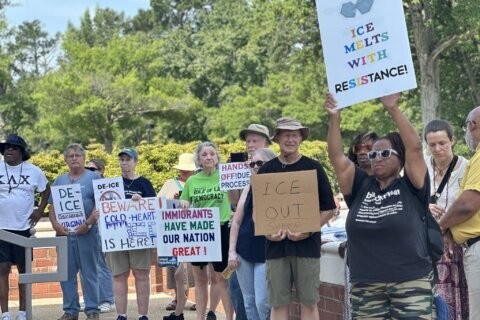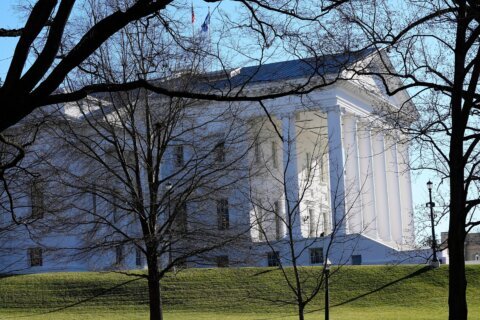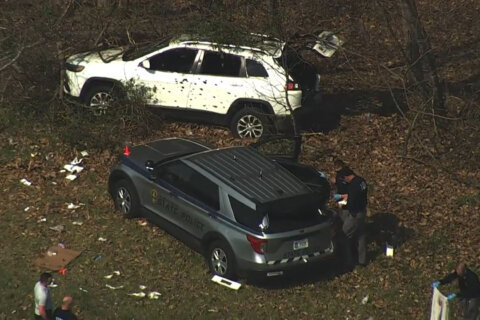Just as Virginia’s Department of Health was working to ramp up its capacity to distribute the coronavirus vaccine, the commonwealth found out it may not have as many doses coming as it hoped.
In a conference call with reporters on Saturday afternoon, the Virginia’s vaccine coordinator Dr. Danny Avula said after the current stockpile of over 900,000 first-round doses is exhausted, further doses may be slow coming.
Avula said the commonwealth has been told by federal administrators that at least until sometime in March, there will be no more than 110,000 new first-round doses available per week for Virginians.
In recent days, Virginia has administered about 20,000 daily doses. Avula said the commonwealth’s goal is to soon be able to administer 50,000 doses per day.
There’s a math problem ahead, however: As the state is able to bring clinics and providers on line, doses may be hard to come by.
So far, Avula said, about 300,000 of the initial 943,000 dose stockpile has been administered. He warned that due to data entry delays, that number may be somewhat low. He said it is possible up to 200,000 first-round doses have yet to be entered into the state’s data collection portal.
Each week, about 110,000 new doses will be available to Virginians. Eventually, capacity to administer the vaccine will far outweigh the amount of vaccine doses available.
Dr. Daniel Carey, the state’s Secretary of Health and Human Resources said that will cause some frustration.
“Down the road … we will have all of these developed mechanisms to get vaccine out but we will be limited by the federal government,” Carey said. “Yes, we want to gear up very quickly and also once we use up current supply, we will have to live within that weekly allocation, so that will bring some frustration.”
At that point, Carey said the state will be hoping for some “upside surprise.”
Both doctors said vaccine volume in excess of those 110,000 weekly doses is unlikely to change until vaccines from providers like Johnson & Johnson and AstraZeneca are approved by the FDA.
“As soon as those types of volumes are available, they’ll rapidly get into Virginians,” Carey said.
Avula called messaging from the federal government “confusing.”
Gov. Ralph Northam’s spokeswoman Alena Yarmonsky recently said the state moved to expand vaccine eligibility to its 1b group, but then became concerned that follow-on doses would be slow coming.
“What we’re seeing is fully in line with the dysfunction that has characterized the Trump administration’s entire response to COVID-19. President-elect [Joe] Biden cannot be sworn in fast enough,” she said.
Virginia’s administrators said it is their understanding that there is no federal stockpile of doses.
“There are not warehouses full of vaccine to distribute, it’s based on just-in-time production,” Carey said.
This “just-in-time” element of the vaccine distribution has made it unclear whether states will efficiently get booster shots for those who already have received their first dose.
Avula said it is his understanding that once a first dose is accounted for, Virginia will automatically be sent vaccine for second round doses. However, if data entry lags actual dosing, this could also cause a problem.
“The data entry piece is critical,” he said.
The uncertainty about the availability of first-round doses prompted some concern about booster shots in Fairfax County this week.
A spokeswoman from the county’s department of health, however, confirmed to WTOP that it expects to be able to meet demand for second doses without problem.
Fairfax County residents do not need to register for their follow-up dose. They will be contacted with more information when it is time to schedule an appointment, the spokeswoman said.
However, those in the 1b group may have to wait slightly longer than first anticipated.
Because of this, Avula asked Virginians to consider their ability to postpone their first dose, if possible.
He used himself as an example. He said as a doctor, he would currently be eligible for the vaccine, but he has chosen not to get it, yet. Since he is 42, healthy and able to do much of his work without interacting with patients in person, he will wait until those who are more fragile get their dose.
“If you can do the things we know work, if you can work from home, if you are consistently wearing a mask, let’s let the folks most susceptible get vaccinated first,” Avula said. “We’ll have to allow for that to happen given we’re not going to get the doses we need likely for a few months.”








